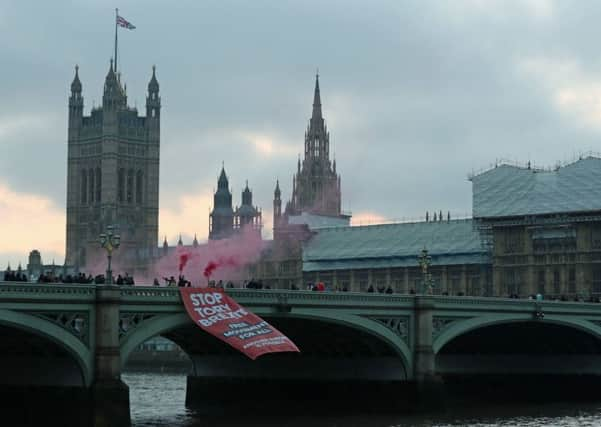William Wallace: Brexit chaos highlights urgent need for One Yorkshire devolution decision


The north of England is now the least represented part of the UK in debates about our national interest. Yorkshire has real interests at stake, from Hull’s position as a major port trading with the continent to our large farm and food exports to continental Europe. But without a voice in the political debate, we risk being left to one side in hard bargaining over the details, if in the current chaos the agreement survives long enough for the details to matter.
The botched management of Brexit has created a constitutional crisis, alongside the confusion over Britain’s economic and political future. We’re all now familiar with the Irish dimension. Faced with a choice between obstacles on the border or reunification in Ireland, the majority in Ulster would now choose reunification, leaving an unreconciled minority and a possible return to the violence of the ‘Troubles’ of a generation ago.
Advertisement
Hide AdAdvertisement
Hide AdThe Scottish Nationalists are protesting Ulster has been offered special concessions that are not available for the Scots. Both Scotland and Northern Ireland returned majorities for ‘Remain’ in the Referendum; the argument that discontent in England has damaged their national interests is a powerful one. The SNP is already considering a second referendum on independence.
England is the most centralised country in the democratic world. Local government has become more and more dependent on Whitehall over the past 25-30 years, with successive reorganisations reducing the number of councillors and increasing the distance between ordinary voters and those who represent them. Councils have been starved of funds, with cities and towns in the north without strong bases for local revenues suffering disproportionately. London schools are much better funded than schools in Yorkshire; we are all painfully familiar with the north-south imbalance in transport funding. Scotland, Northern Ireland and Wales bargain with London over the distribution of public spending, with agreed formula to protect their budgets and support their growth. The north of England has nothing comparable.
A majority in Yorkshire voted to leave the EU. It’s unlikely that many intended their vote to risk the break-up of the UK, or to leave them dominated by a centralised government in southern England. The discontents which led many to vote to leave – the collapse of our old industrial base, the shortage of opportunities for young people, the sense of national decline from past imperial status – will not be resolved by such an outcome. The Brexit campaign has been financed by offshore donors, led by politicians educated in southern public schools, organised by activists who also campaign for lower taxation and a shrunken public sector.
So the campaign for One Yorkshire becomes even more important in the potential chaos of a disorderly Brexit, with the potential for further cuts in public spending and an economic recession. Manchester, like Birmingham, now has a mayor to speak for it. Yorkshire has so far only Dan Jarvis, elected mayor of Sheffield without comparable budget or powers, and campaigning with others across all parties for a regional framework which would give Yorkshire the voice and the weight to ensure that we are heard in Whitehall. The Conservative government appear to be using the lack of progress in implementing the contested ‘city deal’ for the Sheffield region as an excuse for not responding to the wider One Yorkshire proposals.
Advertisement
Hide AdAdvertisement
Hide AdWe may be about to enter months of political and party turmoil, which could also seriously damage the prospects of the British economy. The focus will be on turmoil within Westminster, divisions in Belfast, resistance from Edinburgh, and complaints from Cardiff. Northern concerns, as we face deeper cuts in spending for local services, schools and welfare, risk being overlooked. All of us in political and public life across Yorkshire must fight to ensure that our interests are not forgotten.
Lord Wallace of Saltaire is a Lib Dem peer. He was a Minister in the 2010-15 coalition government.